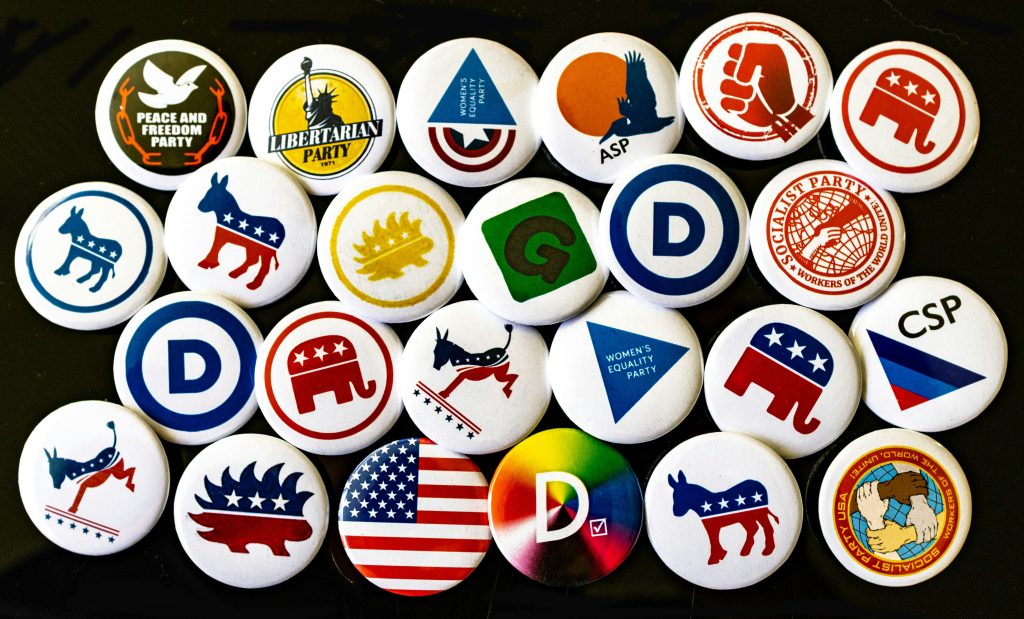Keynote Event Postponed Amidst Election Buzz
In a surprising turn of events, the highly anticipated keynote event featuring Tulsi Gabbard has been postponed until after the upcoming election. The decision has raised eyebrows, especially considering Gabbard’s prominent role as a member of Donald Trump’s transition team. As the political landscape heats up, this postponement reflects the complexities and sensitivities surrounding political figures and their engagements during such critical times.
Gabbard, known for her candid views and unorthodox approach to politics, has been a polarizing figure in recent years. Her alignment with Trump’s team has drawn both supporters and critics, making her a subject of intense scrutiny. The event, expected to draw significant attention and a diverse audience, aimed to delve into pressing issues and engage in meaningful dialogue. However, organizers have decided to err on the side of caution, acknowledging the current political climate’s unpredictability.
The postponement has sparked discussions across various platforms about the implications of political events during an election cycle. Many argue that such gatherings can influence voter perceptions and sway opinions, making timing crucial. As candidates ramp up their campaigns and public interest surges, the decision to delay Gabbard’s appearance underscores the importance of strategic planning in political discourse.
Political analysts speculate that the move may also be a tactical decision to refocus attention on Gabbard’s message without the distraction of active campaigning. By rescheduling the event, there is an opportunity to create a more conducive environment for dialogue, allowing for a deeper exploration of the issues at hand without the immediate pressures of the election.
The event, when it eventually takes place, is expected to cover a range of topics, including governmental policies, social issues, and the future of American politics. Gabbard’s unique perspective as a former congresswoman and military veteran will undoubtedly provide valuable insights, but the question remains: how will the political climate shift by the time the event occurs?
While the postponement is a setback for many eager attendees, it highlights the need for careful consideration in political engagements. As the election draws nearer, events like this serve as vital platforms for discussion, yet they must be managed with an understanding of the current political dynamics.
In the meantime, the public awaits further announcements regarding the rescheduling of Gabbard’s keynote address. As interest continues to grow, it remains to be seen how the election results will shape the nature of political discourse moving forward. Gabbard’s return to the spotlight post-election may very well redefine her role in the ongoing conversation about American governance and societal challenges. The event’s future promises to be just as compelling as the discussions it aims to foster, inviting a diverse array of voices to contribute to the dialogue that shapes our nation’s future.
Tags: Election Postponement, Tulsi Gabbard
A Dramatic Shift: Tulsi Gabbard Endorses Donald Trump
In a striking political turn, former Democratic Representative Tulsi Gabbard has officially endorsed Donald Trump’s presidential campaign, marking a significant departure from her longstanding affiliation with the Democratic Party. This endorsement comes on the heels of Robert F. Kennedy Jr. suspending his own independent presidential campaign and also backing Trump, creating a wave of intrigue in the political arena.
Gabbard’s endorsement is not just a personal decision; it underscores a broader trend of disillusionment among certain progressive Democrats with the current party dynamics. Once celebrated as a rising star within the Democratic Party, Gabbard’s shift raises questions about the ideological divides within the party and the changing landscape of American politics.
The former congresswoman has been vocal about her frustrations with the Democratic establishment, particularly regarding issues such as foreign policy and civil liberties. With her recent alignment with Trump, Gabbard seems to be positioning herself as a voice for those discontented with the mainstream political narrative.
Additionally, Trump’s campaign has welcomed Gabbard and Kennedy into his transition team, signaling a strategic move to bolster his appeal among independent and moderate voters who feel alienated by the two-party system. This coalition of former Democrats could potentially reshape the political discourse leading up to the 2024 election.
As the political drama unfolds, many are left to ponder the implications of Gabbard’s endorsement. Will it galvanize a movement of former Democrats seeking alternatives to traditional party lines? Or will it further fracture the Democratic base, pushing more candidates and voters toward independent or third-party options?
Political analysts are closely monitoring the reactions from both the Democratic Party and Trump’s camp. Gabbard’s endorsement could serve as a catalyst for discussions around party identity and voter alignment in contemporary politics. The ramifications of this endorsement may extend beyond the election cycle, influencing future political collaborations and alignments.
In a landscape where party loyalty is increasingly questioned, Gabbard’s choice reflects a growing sentiment among voters who prioritize candidates’ stances over party affiliation. This shift may also inspire other politicians to reconsider their own positions and the parties they represent.
As the 2024 presidential race heats up, the dynamics will continue to evolve. Gabbard’s endorsement of Trump, alongside Kennedy’s support, suggests a potential merging of ideas that could challenge the status quo within American politics. With both figures now part of Trump’s transition team, their influence could reshape voter perceptions and party strategies in the months to come.
The political landscape is undoubtedly shifting, and Gabbard’s endorsement is a testament to the unpredictable nature of electoral politics. As more former Democrats explore new alliances, the question remains: will this trend lead to a significant realignment of the political spectrum in the United States? The coming months will reveal the true impact of these endorsements and the evolving identity of American political parties.
Tags: Endorsement, political shift, Tulsi Gabbard
Tulsi Gabbard Endorses Donald Trump, Marking a Significant Political Shift
In a surprising turn of events, former Democratic Representative Tulsi Gabbard has officially endorsed Donald Trump for his upcoming presidential campaign. This endorsement signals a dramatic departure from her previous political affiliations and highlights the evolving landscape of American politics. Gabbard, who represented Hawaii in Congress, left the Democratic Party in 2022 and has since aligned herself with more conservative viewpoints. In her endorsement, she emphasized Trump’s commitment to keeping America out of prolonged conflicts, a stance that resonates with many voters who are weary of military engagements abroad. Gabbard’s shift has sparked discussions among political analysts about the implications of her endorsement, especially considering her previous bid for the presidency as a Democrat in 2020. As the 2024 election approaches, her alignment with Trump could influence other disenchanted Democrats and independents to reconsider their political loyalties. Gabbard’s decision to support Trump not only reflects her personal convictions but also illustrates a broader trend of political realignment in the United States. With increasing polarization, figures like Gabbard are finding new platforms that align more closely with their evolving ideologies. This endorsement is poised to garner attention, potentially reshaping the dynamics of the Republican primaries and the general election. As the political climate continues to shift, the ramifications of Gabbard’s endorsement will undoubtedly be felt across the spectrum, prompting both supporters and opponents to reassess their strategies as the electoral battle heats up.
Tags: political shift, Trump endorsement, Tulsi Gabbard



